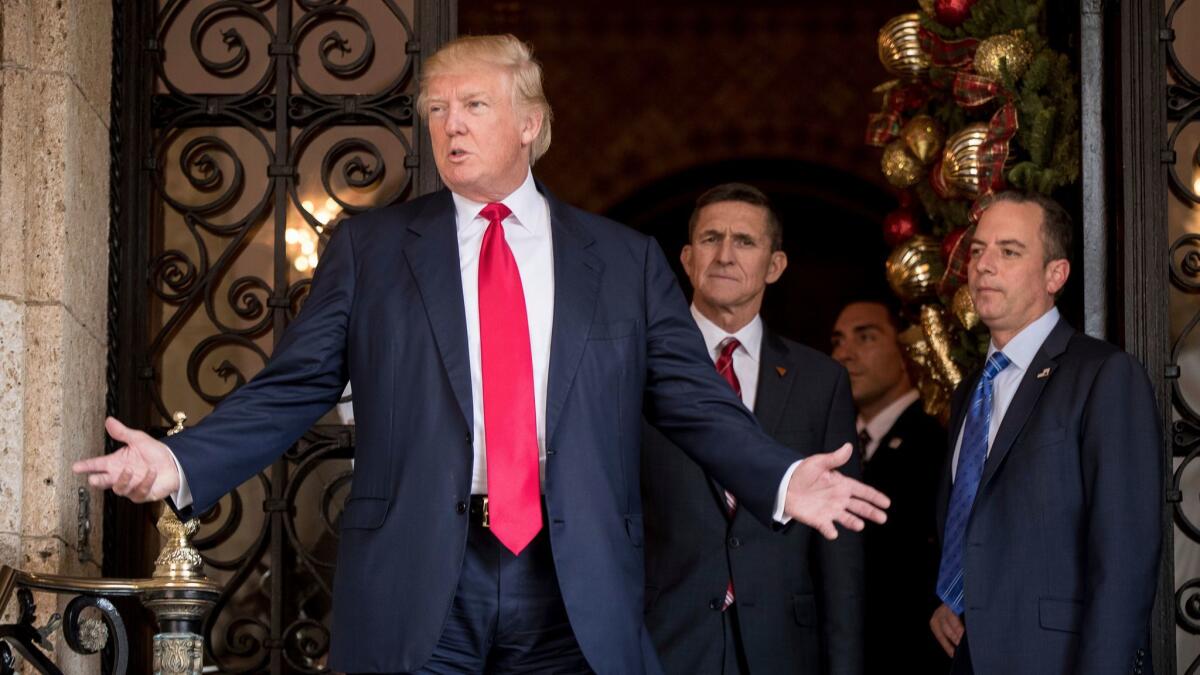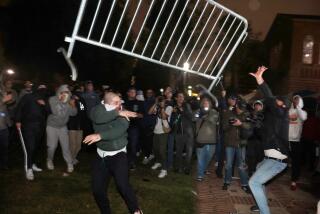Editorial: Drop the defensiveness Mr. Trump. The problem of Russian hacking is bigger than you

To their credit, prominent Republicans in Congress — led by Sen. John McCain of Arizona — are refusing to join President-elect Donald Trump in dismissing concerns about Russian interference in the 2016 presidential campaign.
As a result, it seems increasingly likely that there will be an aggressive congressional investigation into what the intelligence community says was an effort by Russia to use information thefts and disclosures to meddle in America’s democratic process. More recently, the CIA and the FBI now reportedly agree that the object of the interference was to aid Trump and harm Hillary Clinton.
One sticking point holding up the probe is a split among lawmakers over which committee or committees should handle it: a “Select Committee on Cyber,” as McCain and some allies prefer, or the Senate Intelligence Committee and other existing panels, as Senate Majority Leader Mitch McConnell (R-Ky.) has insisted.
We’re not sure it matters that much how the investigation is configured so long as it is aggressive, bipartisan and not conducted completely behind closed doors. A select committee would have the advantage of preventing duplicative inquiries by different committees, but it also could take time to organize.
Rep. Adam Schiff (D-Burbank), the ranking Democrat on the House Intelligence Committee, has offered an attractive alternative: a joint inquiry by the House and Senate intelligence panels in which chairs and ranking members of other interested committees could also participate. That approach would minimize duplication but not require creating an entirely new structure.
Whatever form the investigation takes, it will be able to complete its work more expeditiously if it receives the cooperation of the incoming Trump administration.
The problem, of course, is that the president-elect has adopted a position of willful ignorance about the possibility that Russia meddled in the election, speculating that the hacking could just as easily have been the work of China or “somebody sitting in a bed someplace.” Trump’s chief of staff, Reince Priebus, told Fox News on Sunday that the president-elect may come around “if these intelligence professionals would get together, put out a report, show the American people that they’re actually on the same page.” But both he and Trump have suggested that those who express alarm about Russian interference are just trying to undermine the legitimacy of Trump’s election.
Now that the electoral college has spoken, it’s time for Trump to drop the defensiveness, stop assailing the integrity of the intelligence community and support a thorough and bipartisan congressional investigation. If Russia engaged in cyber espionage to influence the outcome of an American election, that should be alarming even to the candidate who won it.
More to Read
A cure for the common opinion
Get thought-provoking perspectives with our weekly newsletter.
You may occasionally receive promotional content from the Los Angeles Times.






